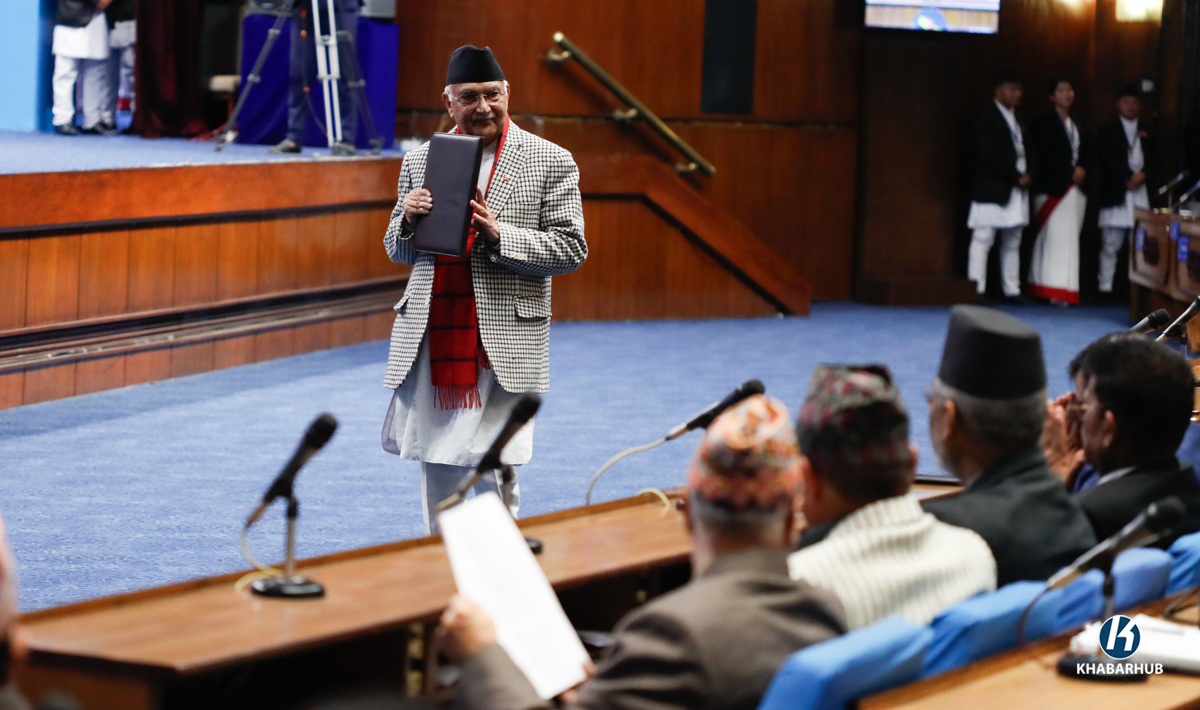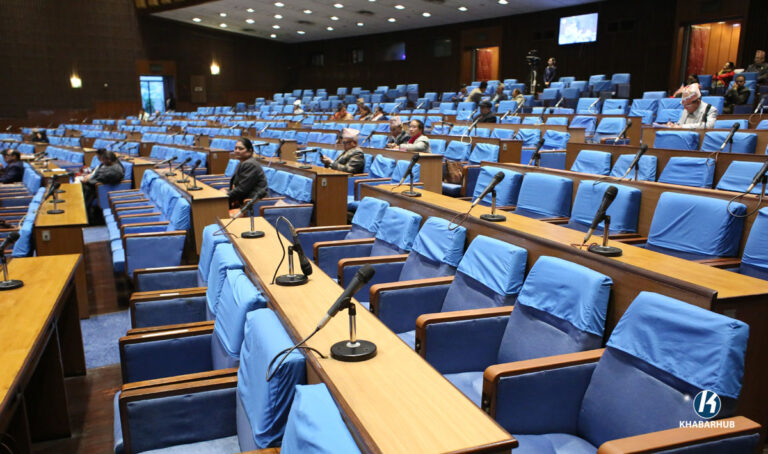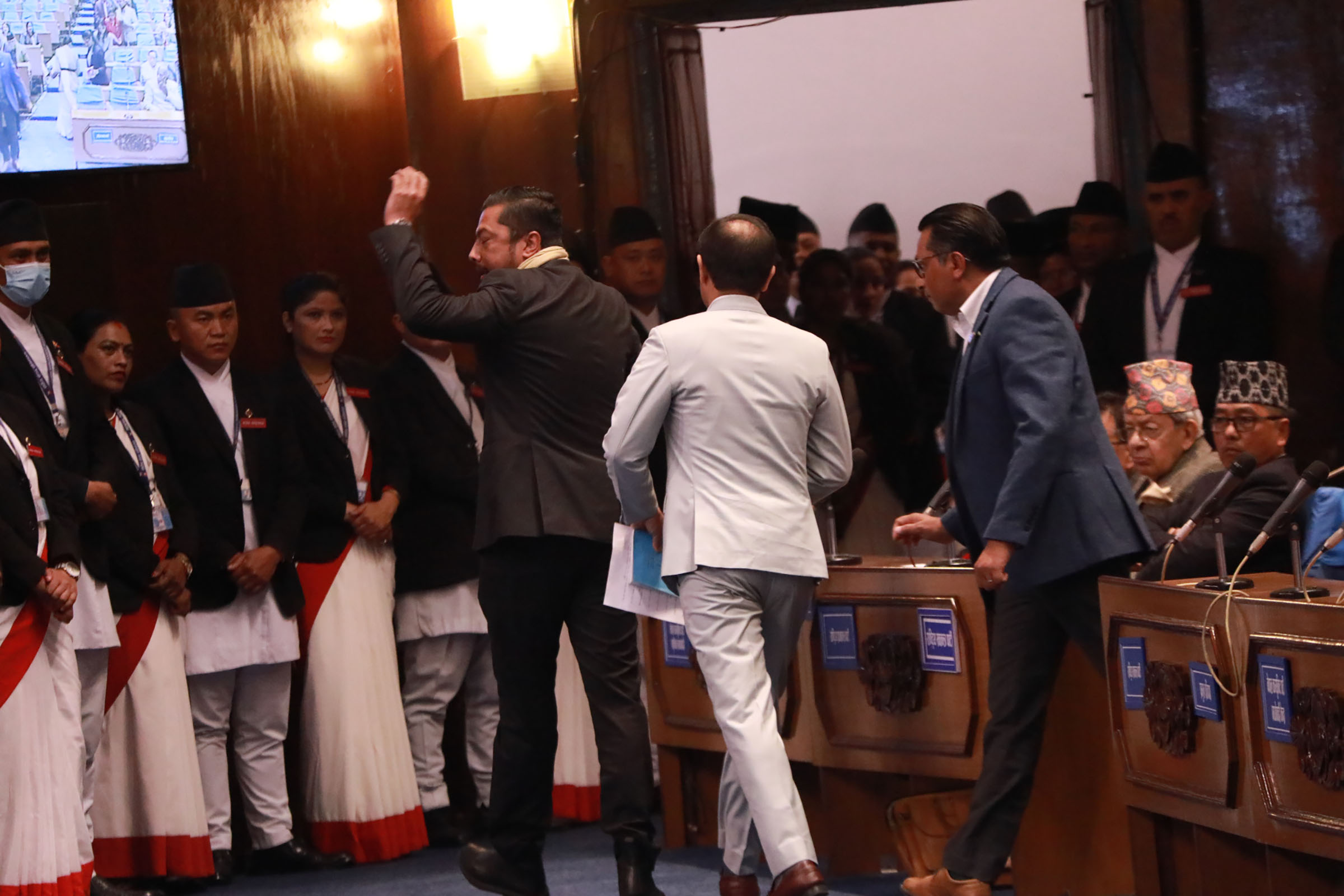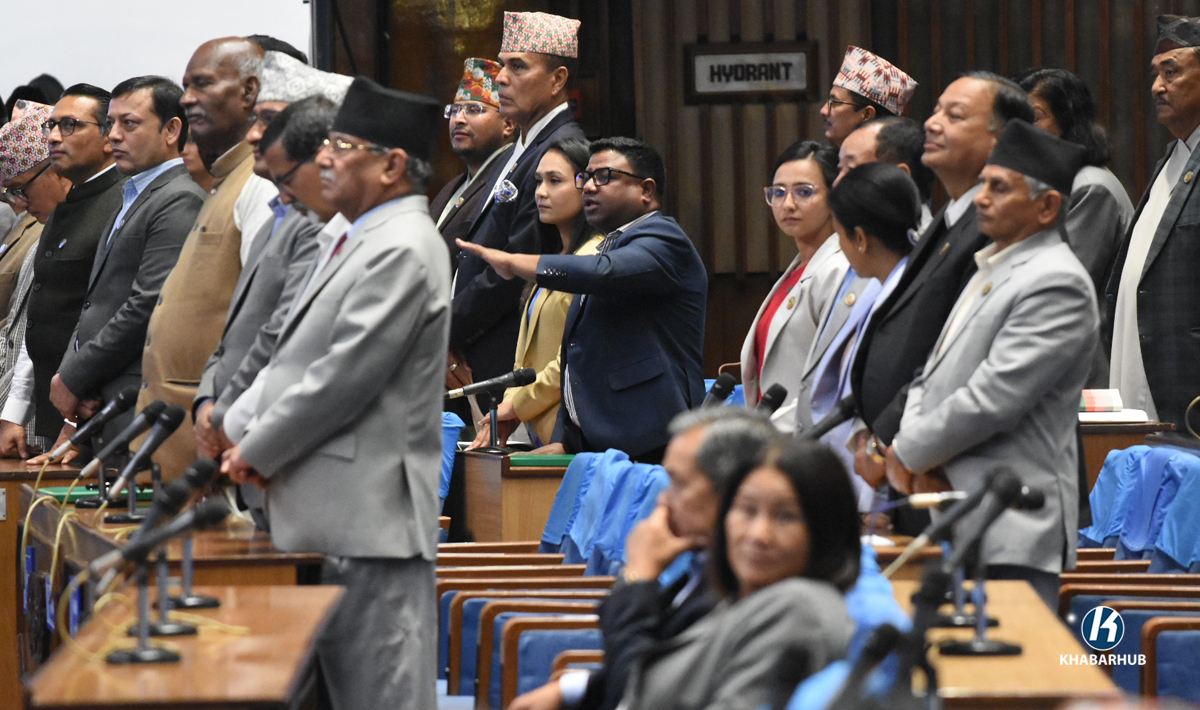KATHMANDU: Nepal’s winter session of Parliament, which began on January 31 and concluded on April 1, unfolded amid significant political controversy.
The session lasted 61 days and saw debates over governance, ordinances, and legislative efficiency. It was marked by tensions between the government and opposition over accusations that the ruling coalition was bypassing parliamentary oversight.
While the session resulted in the passage of some key bills and ordinance replacements, it also exposed deep political divisions and highlighted the government’s reluctance to engage in meaningful policy discussions, particularly regarding economic reforms and pre-budget planning.
One of the most controversial aspects of the session was the government’s reliance on ordinances. Before Parliament convened, the CPN-UML-led coalition government, in partnership with the Nepali Congress, had forwarded six ordinances to President Ram Chandra Paudel for approval.
These ordinances covered amendments related to cooperatives, governance, economic reforms, and land laws. The opposition, as well as some members of the ruling coalition, criticized this move as an attempt to govern through executive power rather than through democratic legislative processes.
The issue became particularly contentious with the Ordinance to Amend Certain Nepal Acts Relating to Land, 2025, which faced strong resistance from coalition partners like the Janata Samajwadi Party Nepal and the Loktantrik Samajwadi Party. Under pressure, the government was eventually forced to withdraw the ordinance, a rare instance where coalition disagreements directly influenced legislative decisions.
Despite this rocky start, the winter session did see some legislative progress. During the session, the government introduced 12 bills, along with one non-government bill. Of these, five bills were passed by both houses of Parliament and later certified by President Paudel, while four remain under review in parliamentary committees.

Several other bills were introduced but have yet to move forward significantly. Among the important bills passed was the Constitutional Council (Works, Duties, and Procedures) (First Amendment) Bill, which was approved unanimously. The government also introduced the Shahid Dashrath Chand University of Health Sciences Bill, and the Commission for the Investigation of Abuse of Authority (Third Amendment) Bill, which remains under discussion in committee.
In addition to passing new bills, Parliament also approved five ordinance replacement bills, which were later certified by President Paudel. These included legal measures on governance reforms, cooperative sector regulations, economic procedures, investment promotion, and privatization.
The approval of these bills ensured that laws initially introduced through ordinances became formally enacted legislation. However, this process reinforced concerns that the government had delayed engaging with Parliament and had instead sought to legislate through ordinances, only seeking parliamentary approval at a later stage.
While legislative work did move forward, one of the most significant failures of the winter session was the absence of pre-budget discussions. In previous years, Parliament engaged in discussions on budgetary principles and priorities several months in advance, allowing time for detailed debate.
However, this year, the government limited pre-budget discussions to just 15 days before the budget announcement in Jestha, significantly reducing the scope for meaningful input from lawmakers. This decision drew sharp criticism, particularly at a time when Nepal is facing economic challenges, sluggish growth, and concerns over public expenditure management.

Many lawmakers argued that such a short timeframe would not allow for substantive policy deliberations, further undermining the role of Parliament in shaping fiscal policies.
According to the Parliament Secretariat, the winter session held 27 meetings across 25 days, with a total of 118 hours and 21 minutes of parliamentary discussions. However, despite these numbers, questions remain about the effectiveness of these debates.
Many critical national issues, such as inflation, unemployment, and governance reforms, were either addressed superficially or postponed. Opposition lawmakers struggled to influence the legislative agenda, as the CPN-UML-led government maintained a firm grip over decision-making. Several important bills, including the Water Resources Bill, remain stuck in committee, with no clear timeline for further discussions.
Beyond legislative work, the session also highlighted growing political divisions within the ruling coalition. Disputes over the land ordinance revealed tensions between the CPN-UML, Nepali Congress, and smaller coalition partners, raising concerns about the stability of the alliance.
The opposition’s influence remained limited, as the government was reluctant to engage in substantive debates. This imbalance led to frustration among opposition lawmakers, who accused the government of treating Parliament as a rubber stamp rather than a forum for genuine democratic deliberation.
With the winter session now concluded, attention shifts to the upcoming budget session, which will be crucial in determining Nepal’s economic direction. The government’s handling of pre-budget discussions, as well as pending legislation on economic policies, governance reforms, and transparency, will be closely watched.

The failure to engage in early budget discussions has already raised concerns, and there is growing pressure on the government to ensure that upcoming legislative sessions are more productive and transparent.
Despite some legislative progress, the winter session of Nepal’s Parliament was ultimately defined by controversy, coalition disputes, and missed opportunities.
The reliance on ordinances, the absence of pre-budget discussions, and the slow movement of key bills all contributed to frustration among lawmakers and the public. Looking ahead, the government will need to foster greater bipartisan cooperation, strengthen parliamentary oversight, and prioritize meaningful policy debates to ensure that the next session delivers more substantive outcomes.









Comment